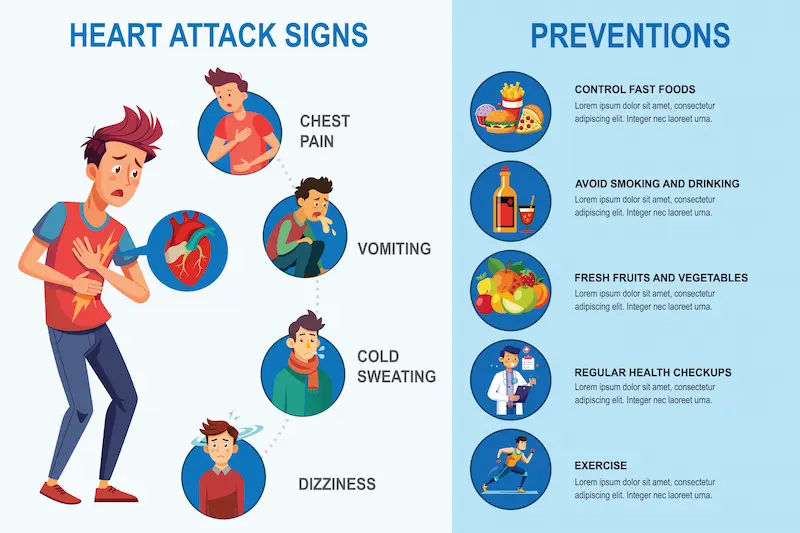- male
- 45 Years
- 22/01/2025
I'm experiencing this weird vibration-like sensation in the upper left side of my chest that's been going on for a couple of days. Initially, I thought it was just acidity, but its been almost 45 days now. Any idea whats causing this and how I can fix it quickly?
More Cardiology Health Queries
View allMy brother has been experiencing chest pain for the last three days and is also having trouble breathing. He's even had an endoscopy done. What might be causing these symptoms, and should we be concerned?
Given that your brother has been experiencing chest pain and breathing difficulties for the past three days, it is crucial to seek prompt medical attention. While an endoscopy can help identify gastrointestinal causes such as GERD or ulcers, chest pain combined with breathing problems can also indicate serious conditions like cardiac issues, respiratory infections, or pulmonary problems. It's essential to have a comprehensive evaluation by a healthcare provider, which may include an ECG, chest X-ray, or other diagnostic tests to determine the underlying cause and ensure appropriate treatment. Please take him to the nearest emergency room or consult his healthcare provider immediately.
Answered by 1 Apollo Doctors
I'm experiencing this strange pressure on my chest every time I yawn, and it's making me feel like I need to vomit. There's also some pressure on my neck. Can you give me some insight into what might be going on?
It sounds like you may be experiencing symptoms of acid reflux or gastroesophageal reflux disease (GERD). I recommend taking an over-the-counter antacid like Tums or Rolaids to help with the chest pressure and vomiting sensation. You can also try taking an H2 blocker like Zantac or Pepcid to reduce stomach acid production. Make sure to follow the recommended dosage instructions on the packaging. If your symptoms persist or worsen, please seek medical attention.
Answered by 1 Apollo Doctors
Is it a big deal that my TMT showed significant ST depression of 0.1mm in leads V4-V6 at peak exercise but didn't persist in recovery? The test said mildly positive for RMI, and I reached my target heart rate. I did Bruce stage 3 for about 8.09 minutes. My blood pressure is normal resting at 12080 and after exercise, it was 14080. I'm not diabetic. My METs were 10.2. Should I be worried about this? Could it be treated at this stage? Do I need to go for an angiography, and if I do, how soon should it be done?
#NAME?
Answered by 1 Apollo Doctors
Disclaimer: Answers on Apollo 247 are not intended to replace your doctor advice. Always seek help of a professional doctor in case of an medical emergency or ailment.




.webp)

_2.webp)